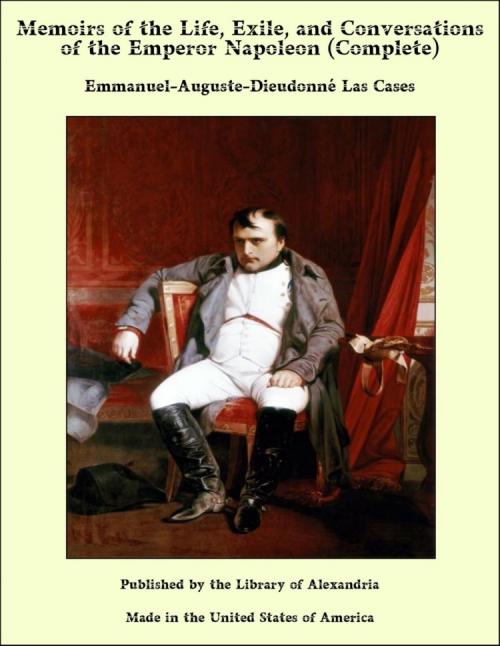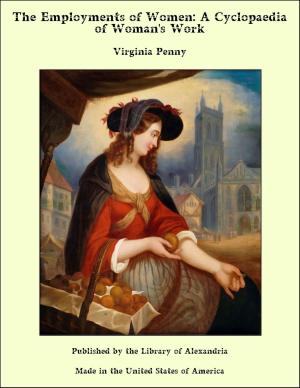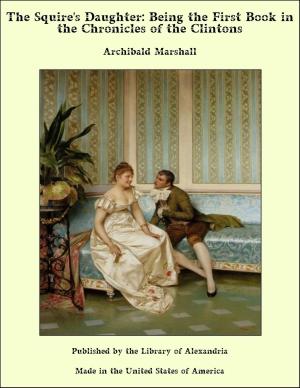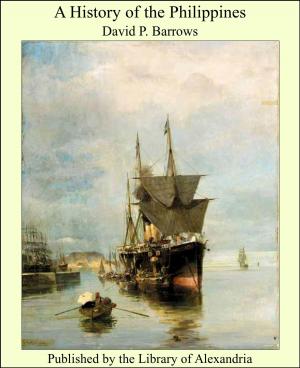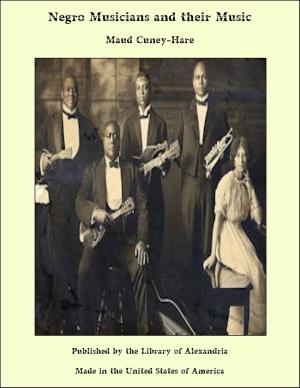Memoirs of the Life, Exile, and Conversations of the Emperor Napoleon (Complete)
Nonfiction, Religion & Spirituality, New Age, History, Fiction & Literature| Author: | Emmanuel-Auguste-Dieudonné Las Cases | ISBN: | 9781465614087 |
| Publisher: | Library of Alexandria | Publication: | March 8, 2015 |
| Imprint: | Language: | English |
| Author: | Emmanuel-Auguste-Dieudonné Las Cases |
| ISBN: | 9781465614087 |
| Publisher: | Library of Alexandria |
| Publication: | March 8, 2015 |
| Imprint: | |
| Language: | English |
It is my intention to record daily all that the Emperor Napoleon did or said while I was about his person; but, before I begin my diary, I hope to be excused for offering a few preliminary remarks, which may not be altogether useless. I never commenced the perusal of any historical work without first wishing to know the character of the author, his situation in society, and his political and domestic relations; in fact, all the important circumstances of his life; conceiving that nothing but a knowledge of these matters could furnish a key to his writings, or a safe ground of confidence in his statements. I therefore proceed to supply in my turn that which I always sought for in others; and, in presenting this diary, to relate a few facts respecting my past life. I was scarcely twenty-one years of age when the Revolution broke out, and had just been made a Lieutenant de Vaisseau, which corresponded with the rank of a field officer in the line: my family was at court, and I had been recently presented there myself. I was not rich; but my name and rank in life, together with my professional prospects, were likely, according to the notions and views of the times, to enable me to marry according to my wishes. It was at such a moment that our political troubles burst forth. One of the principal vices in our system of admission to the service was that of depriving us of the benefits of a solid and finished education. Withdrawn from school at the early age of fourteen, abandoned from that instant to ourselves, and launched as it were on a wide waste, how was it possible to attain the slightest notion of social organization, public rights, or the duties of civil life? Thus, prompted by noble prejudice, rather than by a just sense of duty, above all, led on by a natural fondness for generous resolves, I was amongst the first to hasten abroad and join our Princes; to save, as it was said, the monarch from revolutionary fury, and to defend our hereditary rights, which we could not, it was asserted, yet abandon without shame. From the mode in which we had been educated, it required either a very strong head or a very weak mind to resist the torrent. The emigration soon became general; this fatal measure is but too well known to Europe; nor can its folly, as a political blunder and a social crime, find any excuse in the present day, except in the unenlightened but upright character of most of those by whom it was undertaken. Defeated on our own frontiers, discharged and disbanded by foreigners, rejected and proscribed by the laws of our country, numbers of us reached England, whose Ministers lost no time in landing us on the shore of Quiberon. Being so fortunate as not to disembark, I had, after my return, time to reflect on the horrible alternative of fighting against our country under foreign banners; and, from this moment, my ideas, principles, and projects were either disconcerted or entirely changed.
It is my intention to record daily all that the Emperor Napoleon did or said while I was about his person; but, before I begin my diary, I hope to be excused for offering a few preliminary remarks, which may not be altogether useless. I never commenced the perusal of any historical work without first wishing to know the character of the author, his situation in society, and his political and domestic relations; in fact, all the important circumstances of his life; conceiving that nothing but a knowledge of these matters could furnish a key to his writings, or a safe ground of confidence in his statements. I therefore proceed to supply in my turn that which I always sought for in others; and, in presenting this diary, to relate a few facts respecting my past life. I was scarcely twenty-one years of age when the Revolution broke out, and had just been made a Lieutenant de Vaisseau, which corresponded with the rank of a field officer in the line: my family was at court, and I had been recently presented there myself. I was not rich; but my name and rank in life, together with my professional prospects, were likely, according to the notions and views of the times, to enable me to marry according to my wishes. It was at such a moment that our political troubles burst forth. One of the principal vices in our system of admission to the service was that of depriving us of the benefits of a solid and finished education. Withdrawn from school at the early age of fourteen, abandoned from that instant to ourselves, and launched as it were on a wide waste, how was it possible to attain the slightest notion of social organization, public rights, or the duties of civil life? Thus, prompted by noble prejudice, rather than by a just sense of duty, above all, led on by a natural fondness for generous resolves, I was amongst the first to hasten abroad and join our Princes; to save, as it was said, the monarch from revolutionary fury, and to defend our hereditary rights, which we could not, it was asserted, yet abandon without shame. From the mode in which we had been educated, it required either a very strong head or a very weak mind to resist the torrent. The emigration soon became general; this fatal measure is but too well known to Europe; nor can its folly, as a political blunder and a social crime, find any excuse in the present day, except in the unenlightened but upright character of most of those by whom it was undertaken. Defeated on our own frontiers, discharged and disbanded by foreigners, rejected and proscribed by the laws of our country, numbers of us reached England, whose Ministers lost no time in landing us on the shore of Quiberon. Being so fortunate as not to disembark, I had, after my return, time to reflect on the horrible alternative of fighting against our country under foreign banners; and, from this moment, my ideas, principles, and projects were either disconcerted or entirely changed.
